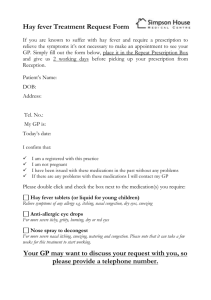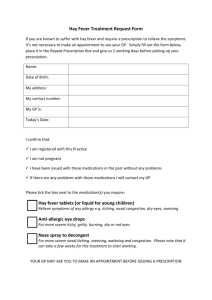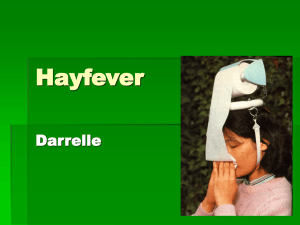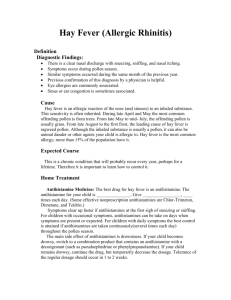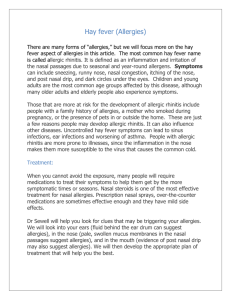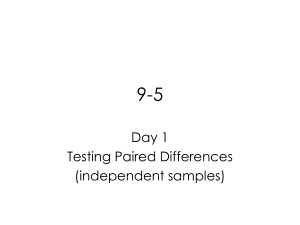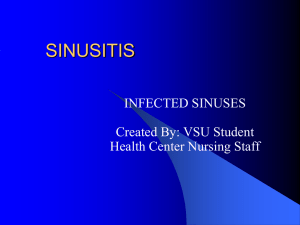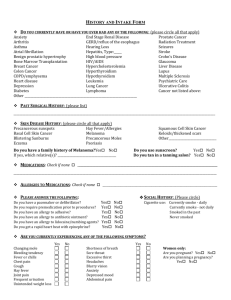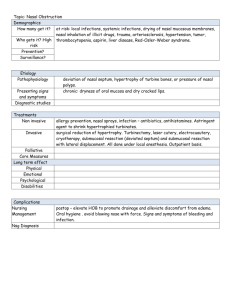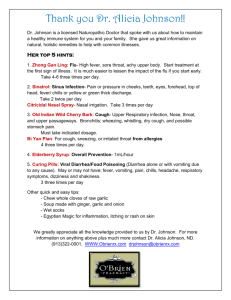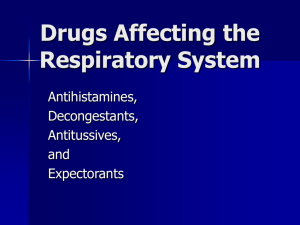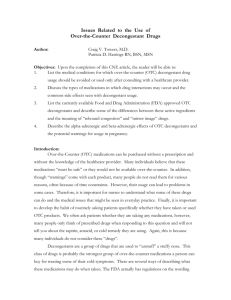SWINE FLU - Cranleigh Gardens Medical Centre
advertisement
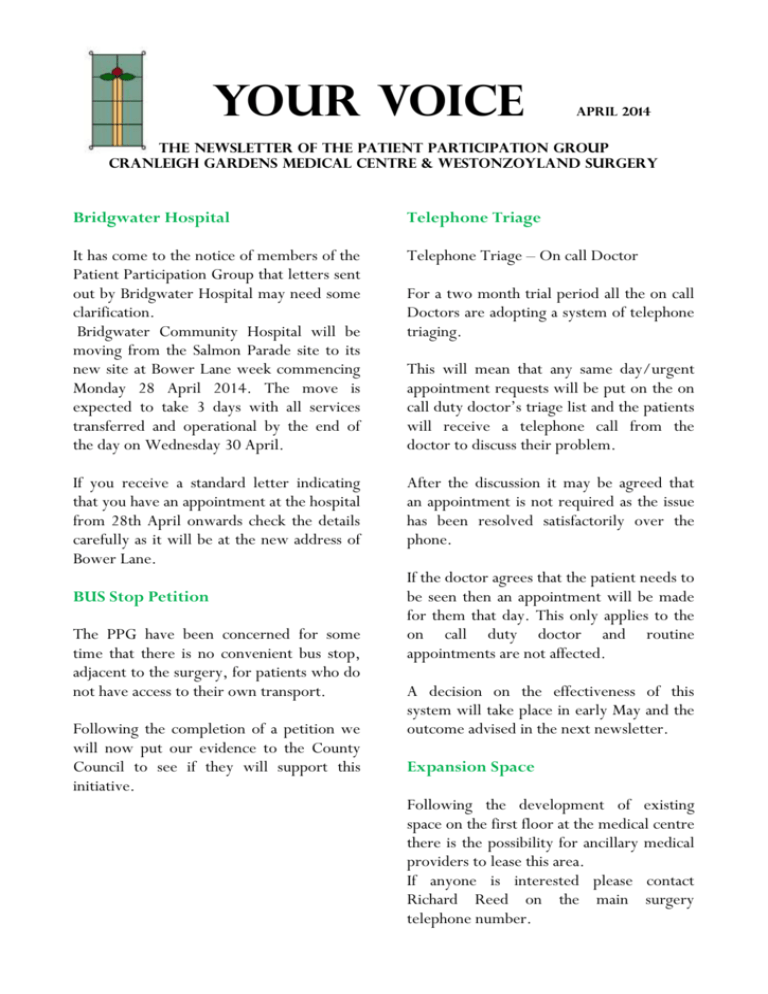
Your Voice April 2014 The Newsletter of the Patient Participation Group Cranleigh Gardens Medical Centre & Westonzoyland Surgery Bridgwater Hospital Telephone Triage It has come to the notice of members of the Patient Participation Group that letters sent out by Bridgwater Hospital may need some clarification. Bridgwater Community Hospital will be moving from the Salmon Parade site to its new site at Bower Lane week commencing Monday 28 April 2014. The move is expected to take 3 days with all services transferred and operational by the end of the day on Wednesday 30 April. Telephone Triage – On call Doctor If you receive a standard letter indicating that you have an appointment at the hospital from 28th April onwards check the details carefully as it will be at the new address of Bower Lane. After the discussion it may be agreed that an appointment is not required as the issue has been resolved satisfactorily over the phone. BUS Stop Petition The PPG have been concerned for some time that there is no convenient bus stop, adjacent to the surgery, for patients who do not have access to their own transport. Following the completion of a petition we will now put our evidence to the County Council to see if they will support this initiative. For a two month trial period all the on call Doctors are adopting a system of telephone triaging. This will mean that any same day/urgent appointment requests will be put on the on call duty doctor’s triage list and the patients will receive a telephone call from the doctor to discuss their problem. If the doctor agrees that the patient needs to be seen then an appointment will be made for them that day. This only applies to the on call duty doctor and routine appointments are not affected. A decision on the effectiveness of this system will take place in early May and the outcome advised in the next newsletter. Expansion Space Following the development of existing space on the first floor at the medical centre there is the possibility for ancillary medical providers to lease this area. If anyone is interested please contact Richard Reed on the main surgery telephone number. Water Damage On Monday 21st March there was an internal water failure which resulted in three treatment rooms being affected. Thanks to the quick actions of Dr Upton who isolated the leak damage was kept to a minimum. We apologise for anyone that may have been affected to date. There will be running repairs to the communication area and corridor to treatment rooms in May. We will keep this interruption to a minimum and appropriate notices will be on display in those areas that will be affected. Hay Fever Before visiting your GP, you could first visit your pharmacist and try treating your symptoms with overthe-counter medications, such as antihistamines. If these fail to improve your symptoms, make an appointment to see your GP as you may need treatment with prescription medications such as steroid medication (corticosteroids). Treatment options are discussed below. Antihistamines Antihistamines treat hay fever by blocking the action of the chemical histamine, which the body releases when it thinks it is under attack from an allergen. This prevents the symptoms of the allergic reaction from occurring. Antihistamines are usually effective at treating itching, sneezing and watery eyes, but they may not help with clearing a blocked nose. They are available in tablet form and also as nasal sprays. Corticosteroid drops nasal sprays and Corticosteroids (steroids) are used to treat hay fever because they have an antiinflammatory effect. When the pollen triggers your allergic reaction, the inside of your nose becomes inflamed. Corticosteroids can reduce this inflammation and prevent the symptoms of hay fever. Your GP may prescribe corticosteroid nasal sprays or drops instead of antihistamines if: you have persistent hay fever that does not respond to antihistamines your main symptom is a blocked nose you are pregnant or breastfeeding Nasal decongestants Hay fever can cause a blocked nose. A decongestant, in the form of a nasal spray, can relieve this. Decongestants reduce the swelling of the blood vessels in your nose, which opens your nasal passage and makes breathing easier. Nasal decongestants shouldn't be used for longer than seven days. They may cause dryness and irritation in your nasal passage, and can make the symptoms of congestion worse (this is known as rebound congestion). Eye drops Eye drops are available from your pharmacist to treat the hay fever symptoms that affect your eyes, such as redness, itchiness and watering (allergic conjunctivitis). These drops contain antihistamine to reduce the inflammation in your eyes, which will relieve the symptoms. .
